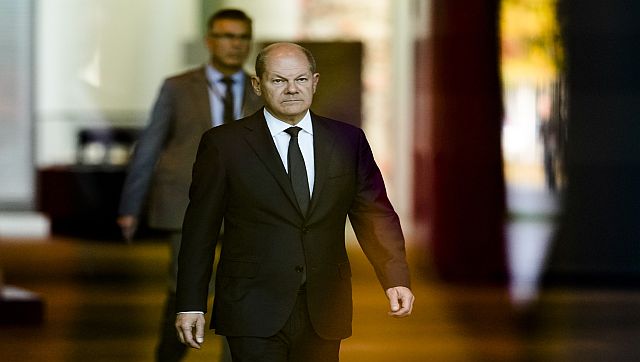Beijing: German Chancellor Olaf Scholz arrived in Beijing on Friday, an AFP reporter traveling in his entourage said, for a visit in which he is seeking to bolster a vital economic relationship in the face of growing questions about his country’s heavy reliance on the authoritarian state. Scholz’s plane landed in the Chinese capital around 09.40 am local time (0140 GMT), for a visit during which he is set to meet with China’s President Xi Jinping and Premier Li Keqiang. The timing of German Chancellor Olaf Scholz’s imminent trip to China and what signals he will give to Beijing have raised questions at home, a German member of the European Parliament said on Thursday. Reinhard Butikofer of the Green Party, which is part of the governing coalition, said in Taiwan that Mr. Scholz’s one-day trip is “probably the most controversially debated visit in the country for the last 50 years.” Mr. Scholz is the first European leader to visit China since Russia’s invasion of Ukraine, which Germany has strongly opposed. Beijing has provided Moscow with diplomatic backing, accused the U. S. and NATO of provoking the attack and scathingly criticised punishing economic sanctions imposed on Russia. Mr. Scholz’s visit also comes as Chinese investment in a container terminal at the Hamburg port has raised concerns in Washington and elsewhere that China is gaining a major grip on key infrastructure in an allied nation. He has downplayed the significance of the deal and in a compromise, China’s COSCO was cleared to take a stake in the port below 25%, prohibiting it from blocking the company’s decisions. Despite the disputes, trade ties remain crucial. China was Germany’s biggest trading partner in 2021 for the sixth consecutive year, its biggest single source of imports and its No. 2 export destination after the United States. Mr. Scholz has pledged to use his trip to make the case for Chinese moderation and assistance in calming the situations with Ukraine and Taiwan. In the face of Chinese threats to annex Taiwan by military force, the self-governing island republic has drawn increasing support from Western politicians, even while their governments maintain only unofficial relations with Taipei in deference to Beijing. Mr. Butikofer said Germany’s governing coalition had agreed on a first-ever “clear expression of support for Taiwan’s democracy against China’s aggression," as well as Taiwan’s “meaningful participation" in international organisations from which it is currently excluded at China’s insistence. Visiting along with Mr. Butikofer were parliamentarians Els Van Hoof of Belgium, Sjoerd Sjoerdsma of Holland and Mykola Kniazhytskyi of Ukraine. At a news conference, Taiwanese Foreign Minister Joseph Wu said the delegation’s visit “demonstrates the strength of the relations between Taiwan and the European Union and the bond that unites us with like-minded democracies across the globe." Sjoerdsma said the visit had special resonance following last month’s twice-a-decade congress of China’s ruling Communist Party, at which Xi Jinping reiterated Beijing’s determination to “reunify" with Taiwan. The sides split amid civil war in 1949 and the vast majority of Taiwanese reject Beijing’s calls to accept Chinese rule. “We have a message to Beijing and I think the core message of our visit here is… that Taiwan is not to be isolated, but that contacts will only increase, that we will not be intimidated, that will be coming over more often, and that our relations and our friendships are not to be determined by others,” Sjoerdsma said. Read all the Latest News , Trending News , Cricket News , Bollywood News , India News and Entertainment News here. Follow us on Facebook, Twitter and Instagram.
The timing of German Chancellor Olaf Scholz’s imminent trip to China and what signals he will give to Beijing have raised questions
Advertisement
End of Article


)

)
)
)
)
)
)
)
)



